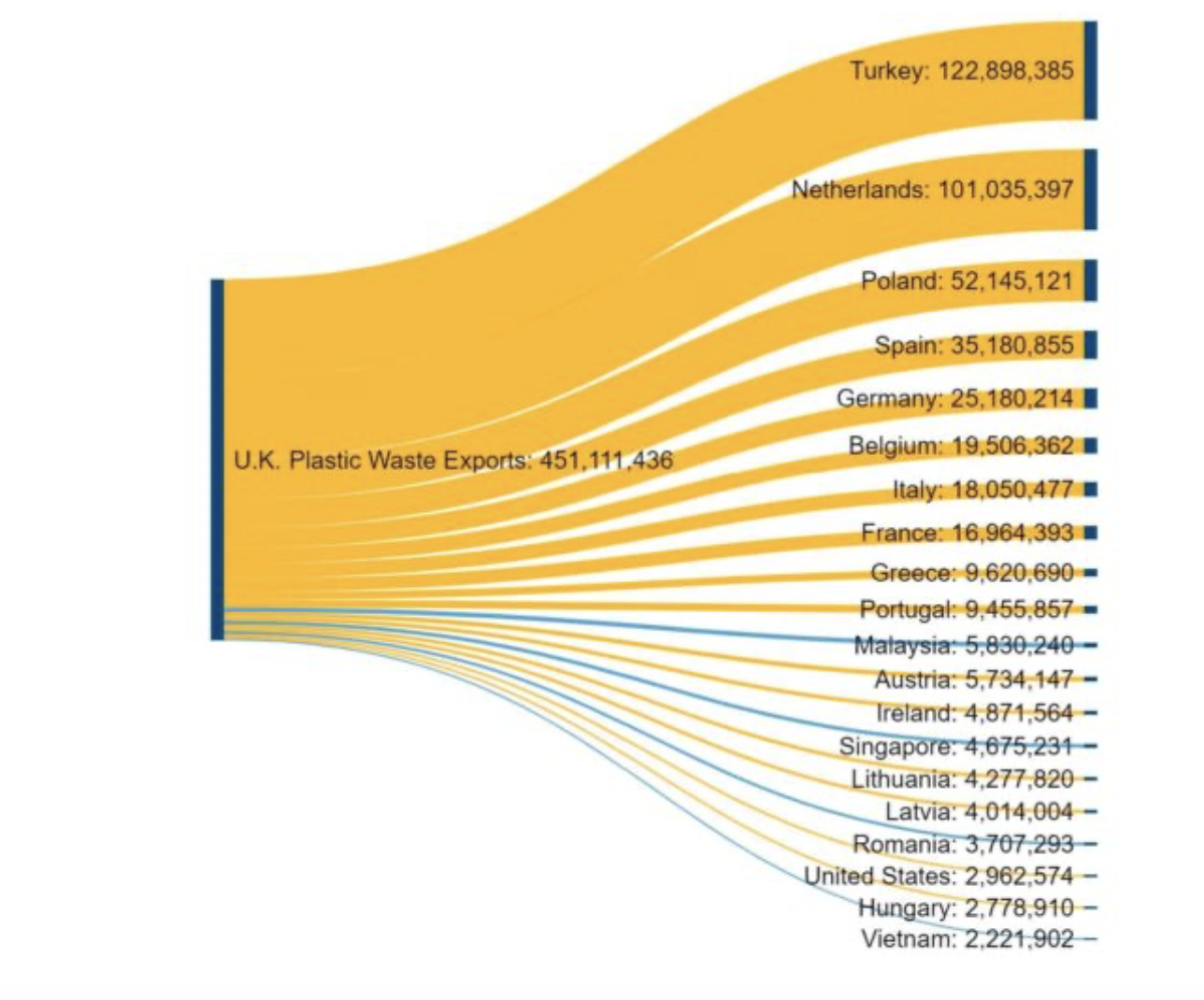The plastic crisis: are waste to plastic facilities the answer?

The plastic waste crisis is one of the prevalent global concerns due to its effect on the environment. In order to address the issue, we must identify challenges and solutions on a country-by-country basis. For instance, most of the UK’s plastic waste is dumped and burned overseas. Are waste to plastic facilities the answer?
In 2020, the UK exported 0.54 million metric tonnes of plastic waste to Turkey, an OECD country, since the plastic waste ban in China. Turkey has been the main export destination for plastic waste because there is not enough capacity within the UK to recycle it. However, Turkey is just one of many.
The UN statistics showed that the UK exported 467,000 tonnes of plastic in 2021. This was down from 537,000 tonnes the previous year – perhaps due to the pandemic – exporting to 20 countries.

Plastic recycling management
Plastic pollution is growing relentlessly globally as waste management and recycling fall short. The consumption of plastic has quadrupled over the past 30 years and accounts for 3.4% of global greenhouse gas emissions.
Considering the global value chains and trade in plastics, an international approach to waste management is needed. The regulation of chemicals, financing of renewable energy projects and developing aid to improve waste management infrastructure and circularity of plastics is required.
Energy demand and action
The energy demand is dramatically rising, with the government predicting a 50 percent growth by 2035. In the past few years, we have seen an acceleration in the adoption of electric vehicles to address this demand. But we must question whether the onus is on individuals or large corporations and governments to make sustainable options more accessible.
Like most of the world, the UK government pledged to reduce its greenhouse-gas emissions to net-zero by 2050 with schemes such as decarbonising cars, using renewable energy sources, replacing gas boilers and ending deforestation. The government has touched on the use of hydrogen fuel for transport, heating, power and energy storage with the goal of a capacity of 5GW of hydrogen production by 2030.
Similarly, carbon capture and storage is also an aim for the UK and essential to reaching net-zero. The government is aiming to capture and store between 20 and 30 million tonnes of CO2 a year by 2030. Despite the lack of thorough action on some schemes, carbon capture projects have been planned across the UK. These include one in Scotland that can extract as much CO2 from the air as 40 million trees.
Addressing plastic waste locally
The UK needs to develop more circular and climate-friendly ways of dealing with plastic pollution. Following COP 26, major businesses have been ordered to a goal of net-zero by 2050 in hopes this will slow down the effects of climate change.
Hydrogen has been at the centre of attention as a solution to combat plastic pollution. Traditional waste-to-energy plants burn municipal solid waste (MSW) to produce steam in a boiler that is used to generate electricity. MSW is a mixture of energy-rich materials such as paper, plastics, yard waste, and products made from wood.
Waste-to-hydrogen power plants are not dependent on any external electricity. H2-Enterprises, an energy storage company from Germany, may have the answer. H2-Industries waste-to-hydrogen concept ship can be located locally on the sea, converting plastic to energy.
The energy required to heat water to 900°C to provide hot steam in the thermolysis process is supplied from 1.5MW of roof-top solar systems in H2-Enterprises production facilities and some of the hydrogen produced by the plant. This makes the process, not just energy self-sufficient and truly emission-free, but also opens opportunities to set up power plants where electrical grids are weak or non-existing.
By converting waste to hydrogen, the UK can immediately slash their plastic exports to other countries, which are often unregulated and harmful to the environment. The technology is proven to reduce plastic and organic waste while creating a clean, low-cost, CO2 – emission-free energy supply to support the UK’s existing renewable energy sources. Therefore, increasing energy usage throughout the country.
Developments like this are essential for the world now with waste-to-hydrogen facilities creating the potential to overcome some of the trickiest decarbonisation challenges facing our economy. These new hydrogen technologies have the potential to provide an affordable, clean and reliable source of power and will play a critical part in the UK’s transition to net-zero.
Read more blogs here